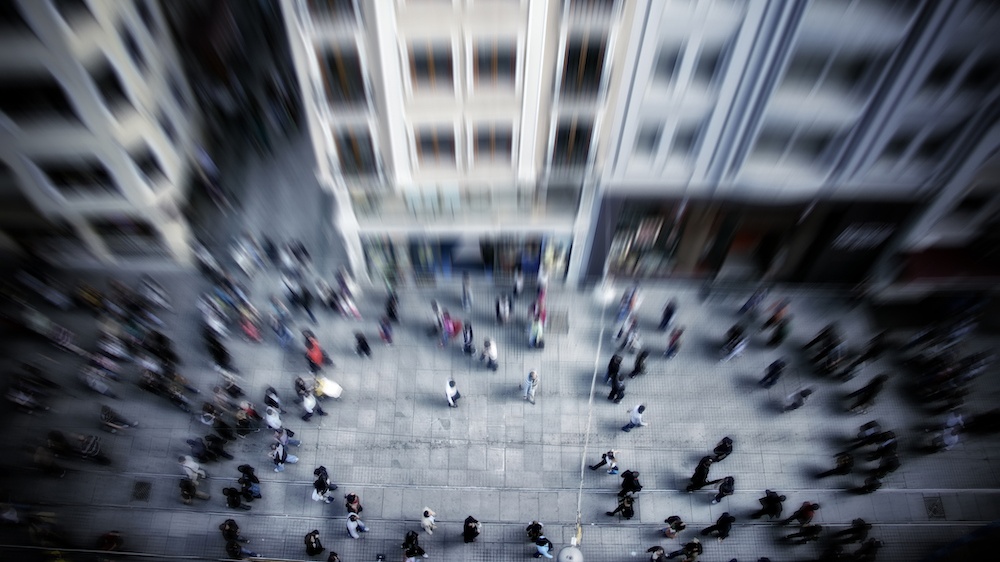If you’re interested in sharing your opinion on any cultural, political or personal topic, create an account here and check out our how-to post to learn more.
____
The development of a sociological imagination and the ability to understand and use sociological research are useful tools for active citizenship in innumerable ways. The sociological imagination enables us to grasp history, biography and the relations between the two within society. I believe that one has to understand what they’re trying to change, and why whatever it is needs to be altered in the first place, before making that change. The very development of sociological understanding and research greatly stems from such things like racial inequalities, consumer culture and housing segregation. There is a great disconnect, it seems, from the people to the actual problem at hand. There's a lack of empathy on both parties to understand the problems and the nonpartisan to fix it.
I sometimes wonder, with sociological imagination and research as a mass crutch to a person’s active citizenship, would it even make the difference. Take racial inequality for instance. Although there are people who do understand what this inequality does from its mass incarceration rates, to low employment of people of color, to uncanny arrests of people of color, would understanding help the cause? Better yet, does understanding help the cause? To say people don’t understand that what they’re doing cripples an entire race would be a great farce.
Despite this knowledge and its unsettling reality, people still choose to stereotype their peers in workplaces, schools, public transportation systems, churches — you name it. I feel that people often times romanticize the idea of being a good citizen in society rather than actually being just that. It take more than just social media outrage, hashtags and bumper stickers to make that sociological change. In the words of George Ritzer, “grievances alone are not sufficient for a social movement to arise, individuals and organizations must be mobilized in order to do something about them.”
In the same fashion, consumer culture sparks similar questioning. Consumer culture defined is “a form of capitalism in which the economy is focused on the selling of consumer goods and the spending of consumer money.” With consumer culture being almost as normal as waking up in the morning, we are so quick to forget the damage it does. The harm is not only to children and their abilities to enjoy their childhoods, but our over excessive consumption of product and our ways of disposing of this product. We produce incredulous amounts of waste in a society we yearn to be active citizens in. We are conscious of the duty to keep our environments safe, to keep wastes at a low amount; we are conscious of the risks that include overflowing landfills, high economical production costs, and oceanic crisis. But it is obvious that protection of our environment isn’t our main focus as a society at the moment. We still continue to litter rather than recycle, prefer plastic over paper and use ludicrous amounts of material for packaging. In layman’s terms, while being aware of the perks of sociological research and development, we are not ready to be active citizens quite yet.
I will admit, the blame isn’t on just the individual. As much as it falls on the individual, it falls on the government and its policies that have made these actions a normality amongst society. The government has greatly contributed to all of these societal atrocities, but housed them in unique ways, such as redlining to gentrification in Black communities. I see housing costs at an all-time high, especially for people of color, the pushing out of Black families from their neighborhoods, the scarcity of grocery stores and the astonishing amounts of food deserts amongst these same neighborhoods. Society has made these travesties OK and has questioned those who try to make it that sore thumb. For democracy to deliver, citizens must become informed about issues that can improve their lives. They must be free to join together to express their views and preferences, and work to see that government responds to citizen views, thus holding those in government accountable.
With that being said, the question still lies: how can we as a society work to change these realities? There are vast ways to do so, from volunteering, boycotting, helping with local projects, raising issues to applying economic pressure. If we take a look back to a revolutionary like time in history, we can easily look at the Montgomery Bus BoyCott of 1955 – 1966. A great deal of success came from people’s abilities to work together and create collective power for what they wanted to change.
Social movements are merely groups of people reacting to conditions. Power gives nothing without great demand. No fundamental social change occurs merely because government acts; it’s because civil society, the conscience of country, begins to rise up and demand change. The change starts with us. The movement begins with we the people, whether it’s a big step or a small. Without action there won’t be modification. It is our duty to do everything we can to live in better conditions. We have the power to be the change we want to see in this world, and it’ll only begin once we welcome that change with open arms.
